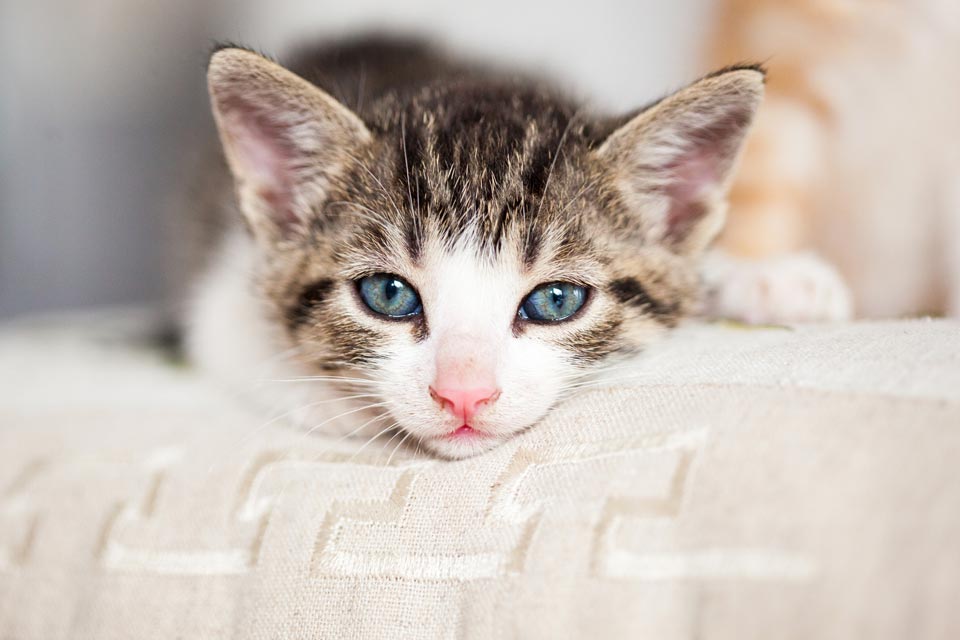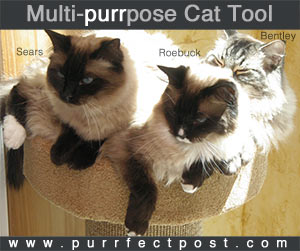Pneumonia in Cats

Pneumonia is a lung condition in which bacteria, viruses, or a fungus is breathed into the airways, travels into the lungs, and causes inflammation and infection there. It can be a severe and even life-threatening condition for cats.
Causes of Feline Pneumonia
A variety of organisms can cause pneumonia in cats. The most commonly seen of those include:
- Calicivirus
- FIP virus
- Mycoplasma bacteria
- Cryptococcus fungi
Pneumonia is often a secondary complication of a simple upper respiratory infection. The cat or kitten might start out with a mild sneeze and watery eyes and nose. During the course of the illness, instead of improving and resolving, the organisms causing the URI might travel down into the lungs and get a foothold there, resulting in pneumonia, which is more dangerous.
Additionally, pneumonia is common in cats secondary to water being inhaled into the lungs if the cat falls into it, liquid backing up into the lungs secondary to congestive heart failure or cancer, and secondary to the inhalation of vomit (aspiration pneumonia). Heartworm disease can also be an inciting cause of pneumonia.
Brachycephalic cats—those with flat faces and short airways—are more prone to developing pneumonia than other cats because they are more likely to suffer from upper respiratory infections.
Some causes of URIs and secondary pneumonia can be vaccinated against, so keeping your cat up-to-date on core vaccines can decrease the chances of pneumonia.
Signs of Pneumonia in Cats
Cats suffering from pneumonia may show the following signs:
- Fever
- Lethargy
- Decreased or absent appetite
- Labored or fast breathing
- Green, yellow, clear, or white discharge from the nostrils
- Wheezing
- Coughing
- Panting (rarely)
Individual cats may not show all of these signs.
Depending on the cause of pneumonia, other bodily systems may be affected as well, resulting in other signs like vomiting, diarrhea, swelling of the abdomen, and collapse.
Diagnosis of Feline Pneumonia
Your veterinarian will take a thorough history of your cat's clinical signs from you and then do a complete physical examination. He or she might note a fever, discharge from the eyes or nose, enlarged lymph nodes under the chin, and wheezing or crackling noises in the chest cavity.
The veterinarian might recommend blood work and chest x-rays to evaluate the kitty further, and those tests can help diagnose pneumonia, though not the specific organism causing it. For that, special testing such as a trans-tracheal wash, during which a sample is collected from the lungs, might need to be performed.
Treatment of Pneumonia in Cats
Supportive care is necessary as part of the treatment of pneumonia in cats. Depending on the cat's general health status and how significant the pneumonia signs are, the kitty might need some or all of the following:
- Hospitalization for monitoring and intravenous medications
- Antibiotics
- Oxygen therapy
- Repeated x-rays
- Parenteral or hand-feeding
Most cases of pneumonia in cats can be successfully treated. However, if the kitty is very young, very old, has concurrent health problems, or the pneumonia is secondary to FIP, the long-prognosis is guarded to poor.
You May Also Like These Articles:
FIP: Feline Infectious Peritonitis in Cats
Upper Respiratory Tract Conditions in Cats
Panting in Cats: What Does It Mean?
X-Rays in Cats: What They Can Tell Your Vet
Notice: Ask-a-Vet is an affiliated service for those who wish to speak with a veterinary professional about their pet's specific condition. Initially, a bot will ask questions to determine the general nature of your concern. Then, you will be transferred to a human. There is a charge for the service if you choose to connect to a veterinarian. Ask-a-Vet is not manned by the staff or owners of CatHealth.com, and the advice given should not delay or replace a visit to your veterinarian.






